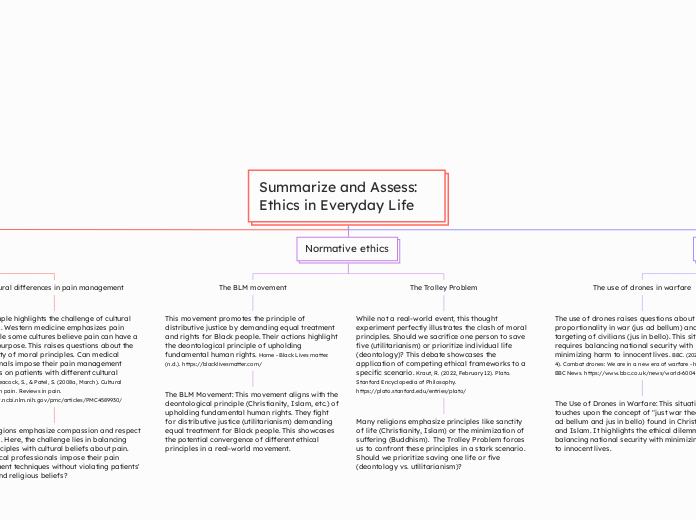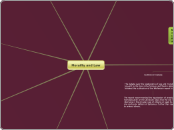Summarize and Assess: Ethics in Everyday Life
Applied Ethics
The social dilemma
This documentary explores the ethical dilemmas faced by social media companies. Should they prioritize user engagement (potentially leading to addiction and misinformation) or user well-being (potentially limiting growth)? This highlights the need for applied ethics in the development and use of technology. Watch the social dilemma: Netflix official site. Watch The Social Dilemma | Netflix Official Site. (2020, September 9). https://www.netflix.com/title/81254224
he Social Dilemma: This documentary explores a situation where profit motives (potentially) clash with the principle of beneficence (do no harm) found in most moral systems. Social media companies must decide between user engagement and user well-being, highlighting the challenges of applying ethics in the digital age.
The use of drones in warfare
The use of drones raises questions about proportionality in war (jus ad bellum) and the targeting of civilians (jus in bello). This situation requires balancing national security with minimizing harm to innocent lives. BBC. (2022, February 4). Combat drones: We are in a new era of warfare - here’s why. BBC News. https://www.bbc.co.uk/news/world-60047328
The Use of Drones in Warfare: This situation touches upon the concept of "just war theory" (jus ad bellum and jus in bello) found in Christianity and Islam. It highlights the ethical dilemma of balancing national security with minimizing harm to innocent lives.
Normative ethics
The Trolley Problem
While not a real-world event, this thought experiment perfectly illustrates the clash of moral principles. Should we sacrifice one person to save five (utilitarianism) or prioritize individual life (deontology)? This debate showcases the application of competing ethical frameworks to a specific scenario. Kraut, R. (2022, February 12). Plato. Stanford Encyclopedia of Philosophy. https://plato.stanford.edu/entries/plato/
Many religions emphasize principles like sanctity of life (Christianity, Islam) or the minimization of suffering (Buddhism). The Trolley Problem forces us to confront these principles in a stark scenario. Should we prioritize saving one life or five (deontology vs. utilitarianism)?
The BLM movement
This movement promotes the principle of distributive justice by demanding equal treatment and rights for Black people. Their actions highlight the deontological principle of upholding fundamental human rights. Home - Black Lives matter. (n.d.). https://blacklivesmatter.com/
The BLM Movement: This movement aligns with the deontological principle (Christianity, Islam, etc.) of upholding fundamental human rights. They fight for distributive justice (utilitarianism) demanding equal treatment for Black people. This showcases the potential convergence of different ethical principles in a real-world movement.
Metaethics
Cultural differences in pain management
This example highlights the challenge of cultural relativism. Western medicine emphasizes pain relief, while some cultures believe pain can have a spiritual purpose. This raises questions about the universality of moral principles. Can medical professionals impose their pain management techniques on patients with different cultural beliefs? Peacock, S., & Patel, S. (2008a, March). Cultural influences on pain. Reviews in pain. https://www.ncbi.nlm.nih.gov/pmc/articles/PMC4589930/
Many religions emphasize compassion and respect for others. Here, the challenge lies in balancing these principles with cultural beliefs about pain. Can medical professionals impose their pain management techniques without violating patients' cultural and religious beliefs?
Edward Snowden leaks NSA spying
This event raises questions about the source of morality. Did Snowden act based on an internal moral compass (utilitarianism - preventing mass surveillance) or societal expectations (following the law)? The debate explores the objectivity of moral judgments, as some consider him a hero, while others see him as a traitor. Guardian News and Media. (2023, June 7). Snowden, MI5 and me: How the leak of the century came to be published. The Guardian. https://www.theguardian.com/us-news/2023/jun/07/edward-snowden-mi5-nsa-prism-ghcq
This case connects to the concept of Divine Law present in religions like Christianity and Islam. Here, morality is seen as divinely ordained by a higher power. Snowden's actions could be interpreted as following a higher moral code (utilitarianism - preventing mass surveillance) even if it defied human-made laws.









